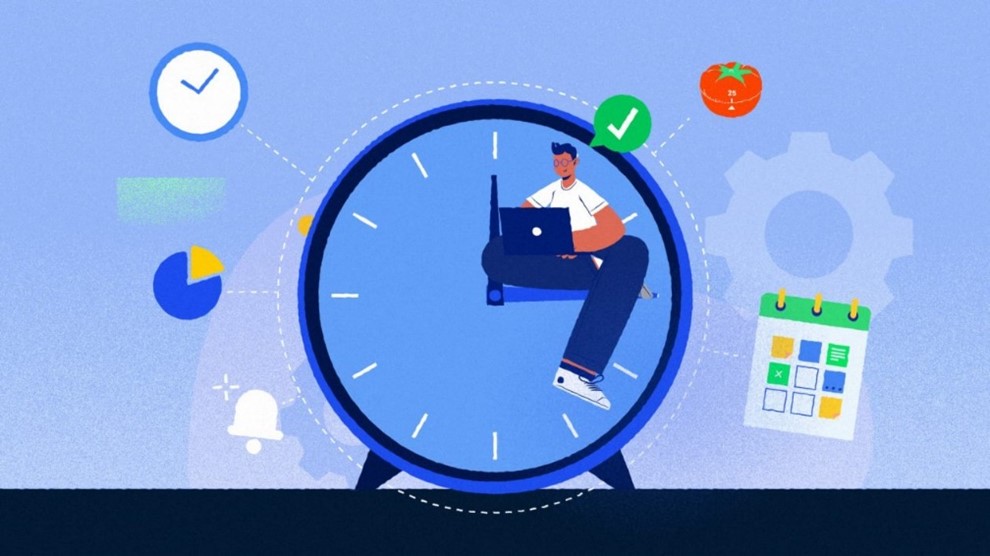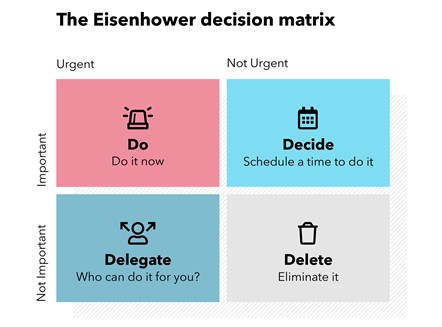
Time management is extremely crucial for students because you have to balance your academic life with daily life at the same time. This is no easy task. Yet effective time management can help you to avoid stress and burnout by allowing you to stay organized and focused. In this article, we are going to explore the importance of time management and find out the best ways for students to manage your time.
In this article

Time management for students is about effectively allocating and managing one's time to balance academic studies, extracurricular activities, social life, and personal commitments.
As a student, do you often feel like there are never enough hours in the day to get everything done? Between attending classes, completing assignments, studying for exams, and trying to maintain a social life, it can be easy to feel overwhelmed and stressed. For this reason, time management is a critical skill that every student should possess. With effective time management skills, you can learn to prioritize your tasks and to-do lists and make the most of your limited time.
Here are some of the importance of time management for students:
- It helps you to improve academic performance: Time management helps students to prioritize tasks based on deadlines and importance, effectively allocate time to each task, and stay on track with academic assignments, hence leading to better grades and academic performance.
- It helps you to enhance productivity: By properly managing tasks, students can accomplish more in less time and increase their overall productivity.
- It helps you to reduce stress: Proper time management can reduce stress and anxiety by eliminating the need to cram or try to complete numerous tasks within a short period.
- It helps you to improve work-life balance: Time management helps students balance their academic workload and other commitments with their personal activities and social life.
- It helps you to increase motivation: Having a structured plan can increase motivation for students as it provides a clear outline of what needs to be done and how to do it.
- It helps you make better decisions: Time management helps students make better decisions by giving them time to assess situations and evaluate their options.
- It helps you to develop self-discipline and self-awareness: By following a time management plan, students can learn to manage their time better, understand their strengths and weaknesses, and develop self-discipline.

Here are some tips for managing time as a student:
1.Set goals and prioritize tasks
To effectively manage your time, it is essential to understand what you need to accomplish clearly. Set specific and measurable goals for yourself, and prioritize your tasks based on their importance and deadline. There are a few ways to do this, but one of the most common approaches is to use the Eisenhower Matrix. This is a simple four-quadrant matrix that helps us to categorize our tasks based on their importance and urgency. The four quadrants are:
- Urgent and important
- Important but not urgent
- Urgent but not important
- Neither urgent nor important

By categorizing our tasks in this way, we can focus on the most important tasks and ensure that we are not neglecting anything that is urgent or important but may not be immediately noticeable.
2.Avoid procrastination
Procrastination is the enemy of time management. It can be tempting to put off tasks you do not want to do, but this only leads to more stress in the long run. Instead, try breaking down tasks into smaller, more manageable steps and work on them consistently over time. This will help you to avoid last-minute cramming and ensure that you have enough time to complete every task to the best of your ability.
3.Create a daily routine
Creating a daily routine can help you to utilize your time more efficiently. Plan out your day and allocate specific time slots for studying, attending class, completing assignments, and other activities. This will help you to stay organized and focused and ensure that you are making progress towards your goals.
4.Learn to say no
As a student, there are many opportunities to get involved in extracurricular activities and social events. While these can be valuable experiences, it is important to remember that your time is limited. Learn to say no to activities that are not essential or do not align with your goals. This will allow you to focus on the tasks that are most important and help you to achieve your objectives more efficiently.
5.Take breaks and prioritize self-care
It can be easy to get caught up in the demands of academic life and forget to take care of yourself. However, prioritizing self-care is essential for effective time management. Make sure to schedule in regular breaks to rest and recharge your batteries, and prioritize activities that promote your physical and mental well-being, such as exercise, meditation, or spending time with friends and family.
6.Use technology to your advantage
Technology can be a powerful tool for time management. Use apps and productivity tools to organize your schedule, track your progress, and stay on top of your tasks. Consider using productivity techniques such as the Pomodoro method to help you stay focused and make the most of your time.
7.Get organized
One of the biggest obstacles to effective time management is disorganization. Make sure that your study and work spaces are clean and clutter-free, and that you have everything that you need within easy reach. This will help you to stay focused and avoid distractions, allowing you to work more efficiently.
8.Seek help when you need it
Sometimes, despite our best efforts, we may still struggle to manage our time effectively. If you find yourself overwhelmed or struggling to keep up with your schedule, do not hesitate to seek help. Talk to a teacher, counselor, or advisor, or consider enlisting the help of a tutor or academic coach. Remember, there is no shame in asking for help, and in the long run, it can save you time and stress.
9.Adopt time management tools
There are various tools and activities that students can use to help with time management. Here are some examples: time management apps (Trello, Asana and Todoist), Pomodoro technique, Planners, Time-boxing Method, Goal Setting and distraction-blocking apps (StayFocusd, Forest and Freedom).
1. What is Good Time Management and Poor Time Management?
A: Effective time management for students is all about setting priorities, creating schedules, and sticking to them. It involves allocating enough time for school work, activities, and personal time, and ensuring that all deadlines are met ahead of time.
Poor time management, on the other hand, involves procrastination, lack of planning, and disorganization. It leads to missed deadlines, incomplete assignments, and stress and anxiety. When students fail to manage their time, they may miss out on academic opportunities, compromise their mental and physical health, and struggle to achieve their life goals.
2. What are the benefits of good time management for students?
A: Some of the benefits of good time management for students include better academic performance, reducing stress, enhancing productivity, increasing free time, and personal development.
3. What are the common time-wasting activities that students need to avoid?
A: Common time-wasting activities that students need to avoid include excessive social media use, excessive television, video games, aimless internet surfing, lack of organization, and procrastination.
In conclusion, effective time management is an essential skill for students to develop. It helps them to balance their academic work, social life, and personal responsibilities, leading to improved academic performance, reduced stress levels, and a better quality of life. By utilizing time management skills, tips, and tools, students can master time management and become more productive, efficient, and successful.
